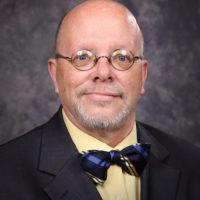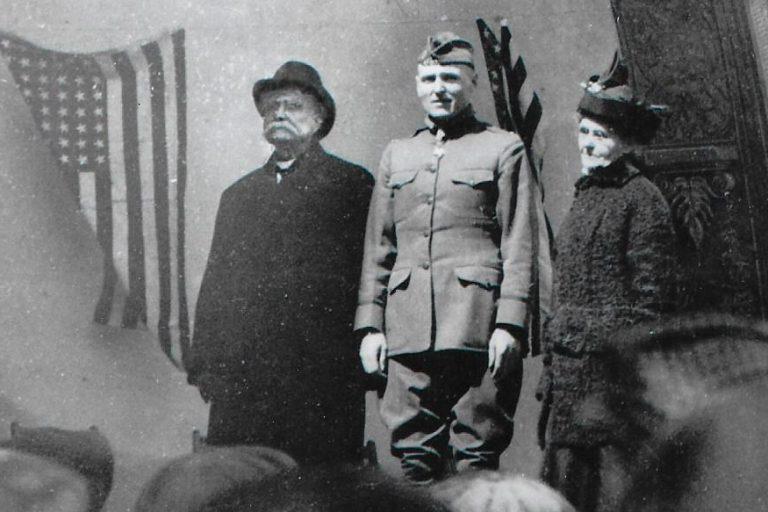History Degree
The study of history is the study of human experience.
The study of history is the study of human experience.
At Park University, our Bachelor of Arts in History degree program is designed to give students the opportunity to appreciate the diversity of human encounters through their own and other’s cultures and societies as they have developed over time.
When you pursue the Bachelor of Arts in History degree, your courses will teach you research techniques, problem-solving skills, and how to critically evaluate evidence to better understand the evolution of various cultures and societies and the impact of this evolution on the global society.
Whether you want to embark on a career as a history teacher, writer, archivist, lawyer or any number of career options with a history degree, we can prepare you to pursue your own unique career path.
What careers are open to me if I want to be an historian? Graduates can apply their history degree in a variety of workplaces and job titles.
Students see the study of history not as part of a general education preparing them to be something else, but as a discipline and a profession with interests, skills, and methods in which to be engaged.
Professional historians need diverse skills, because they often carry out multiple historical activities in any particular workplace.
The Occupational Employment and Wage Statistics Report, released in May 2020 by the U.S. Bureau of Labor Statistics, recorded that the Mean Hourly Wage for historians was $32.88 with a Mean Annual Salary of $68,400.
As a student in our Bachelor of Arts in History program, you will have opportunities to take face-to-face classes at our Parkville, Missouri campus or online. Students who choose to pursue a minor in history can take face-to-face classes in Parkville or online as well.
The Bachelor of Arts in History degree requires a minimum of 122 completed credit hours, including 36 hours of degree-specific core curriculum and approved electives. Refer to your catalog for a complete listing of coursework for this degree.
The internship experience is designed for students to encounter the real-world operation of archives, museums, living history sites, galleries, historic sites, etc.
HIS 400: History in the Public Realm is one of two capstone courses in the Bachelor of Arts degree in History. The internship allows an assessment of the student’s performance from an individual currently employed in the historical profession. In addition to their exposure to real-world operations in various settings, many students have reported establishing valuable professional contacts helpful to them after graduation.
Students will not be enrolled in HIS 400 until the internship location site is approved. Download, complete, and submit the Student Pre-Approval Internship Location Form. For more information, access History Program Internship.
All History majors are required to complete a senior writing capstone under the guidance of a full-time Park University history faculty member. The capstone applies sustained, independent research, including formulating a historical question, historical methodology, devising research strategy, and evaluating primary and secondary sources.
The senior capstone project is an integral and distinguished part of the History Program’s curriculum. The capstone project can mark the culmination of an undergraduate career and form the most rewarding experience of your collegiate career.
The capstone project is completed over an eight-week term or sixteen-week semester. (HIS 453 for B.S. in Military History majors is taught in 8-week terms; HIS 453 for B.A. in History majors is taught only in 16-week semesters.)
The History Senior Writing Capstone course contains a Canvas shell, where the Senior Writing Capstone Handbook is available, and all assignments are uploaded. Refer to the Senior Writing Capstone Handbook, which explains the goals of the capstone project and the requirements of a feasible historical question.

Chair, Department of Culture & Society
Professor of History
tim.westcott@magicimpex.com

Associate Dean, College of Liberal Arts and Sciences
Professor of History
debra.sheffer@magicimpex.com

George S. Robb, a 1912 graduate of Park College, served in World War I as an officer with the 369th Infantry Regiment, better known as the “Harlem Hellfighters.” Robb’s actions, in late September 1918, were acknowledged following the war as a recipient of the Medal of Honor. Park University history majors assist in conducting research related to the Valor Medals Review Project.
Career options with a history degree include jobs in federal, state and local government, museums, libraries, classrooms, media and publications, collections and archives, preservation and land use.
View a list of career options with a history degree.
Our programs will prepare you for a career such as a:


Museum Curatorial Technician
Why did you pursue a curatorial and preservation career?
This career matched perfectly with my personality, though I didn’t know it at first. I did a personality and career assessment with the career counselors at school, which asked about what I was good at, what I was interested in, and what I enjoyed doing. The top three answers it submitted for me were librarian, archivist, and museum curator. Working with collections, giving attention to detail and problem-solving, and working with like-minded people really drew me in to the fields of curation and historic preservation.
What did you appreciate most about your Park University education?
I really appreciated that Park provided a Public History program at the undergraduate level. As a nontraditional student, I had a limited number of resources to apply to getting my degree. Being able to learn things that often aren’t available outside of a Master’s program allowed me to kickstart my education and career with less of a time commitment than another 2-3 years would have entailed.
How would you describe the History professors?
The history professors at Park are knowledgeable, flexible, personable, and caring. I learned a great deal from them, not only from their prepared curricula but also from being able to question them and discuss the topics at hand within various contexts. History is about learning from the past and applying those lessons to the present, and I always felt the history professors had a solid footing in each timeframe. Additionally, I felt comfortable talking to them about current events and how history applied to us as individuals. Lastly, and most meaningfully to me, the history professors treated me with incredible grace, caring, and understanding, particularly when I was going through some difficult struggles. They allowed me the flexibility I needed in that time to succeed without feeling guilt or shame and provided me immeasurable amounts of support and encouragement, for which I am eternally grateful.
How did your Park University education prepare you for your current position?
The great thing about the Public History program was that it provided so much of the theory and background for a career in historic preservation while also giving us numerous hands-on opportunities to practice what we learned. While a more traditional history degree would have been an excellent steppingstone for a curatorial career, the direct knowledge and training in my specific field were invaluable experiences that helped lead me to getting such a great position.
What do you enjoy most about your career?
I really enjoy the variety of tasks involved in my career. Maintaining and preserving a historic home, preserving and creating storage solutions for historic artifacts, researching and developing exhibits for both physical space and social media; all these activities scratch a separate itch, which keeps me from getting bored and makes the job very fulfilling.